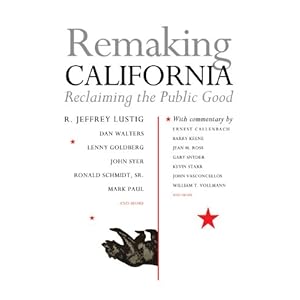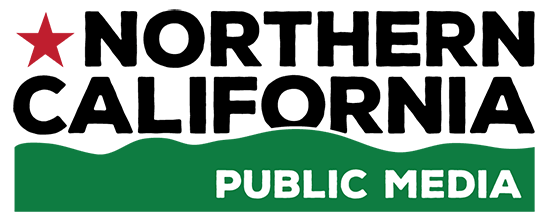 There’s widespread agreement that California’s state government is dysfunctional and “broken.” Our constitution was adopted when the the Golden State small, homogenous and barely industrialized. What will it take to bring the mechanics of the California'’s governance into the 21st century?
There’s widespread agreement that California’s state government is dysfunctional and “broken.” Our constitution was adopted when the the Golden State small, homogenous and barely industrialized. What will it take to bring the mechanics of the California'’s governance into the 21st century?
In addition to editing Remaking California: Reclaiming the Public Good, R. Jeffrey Lustig, a professor of government at Cal State Sacramento, contributed chapters framing the overall issue and spelling out the metholoogy and some suggested changes to be made in a "people's constitutional convention." Other contitutional changes are proposed in a series of essays from diverse thinkers and analysts including historian Kevin Starr, poet Gary Gnyder, and former north coast legislator Barry Keene.
 Nothing has changed the California state constitution as much as the statewide initiative process, which Lustig explains was an early reform measure that, over time, came to be emlpoyed in ways that countermand the reformers' intentions.
Nothing has changed the California state constitution as much as the statewide initiative process, which Lustig explains was an early reform measure that, over time, came to be emlpoyed in ways that countermand the reformers' intentions.
·
 Proposition 14, passed by California voters last June, was presented as a reform that would reign in partisan extremism through a sort of Open Primary. Lustig, however, is not conviced that either the state issue or the adopted change is an accurate assessment of the state's current crisis of governance.
Proposition 14, passed by California voters last June, was presented as a reform that would reign in partisan extremism through a sort of Open Primary. Lustig, however, is not conviced that either the state issue or the adopted change is an accurate assessment of the state's current crisis of governance.
R. Jeffrey Lustig will talk about Remaking California and some of the ideas in it tonight at the Peace and Justice Center of Sonoma County, 467 Sebastopol Avenue in Santa Rosa, at 7 pm. The event is co-sponsored by the Living Wage Coalition of Sonoma County. Details can be found here.

 Live Radio
Live Radio